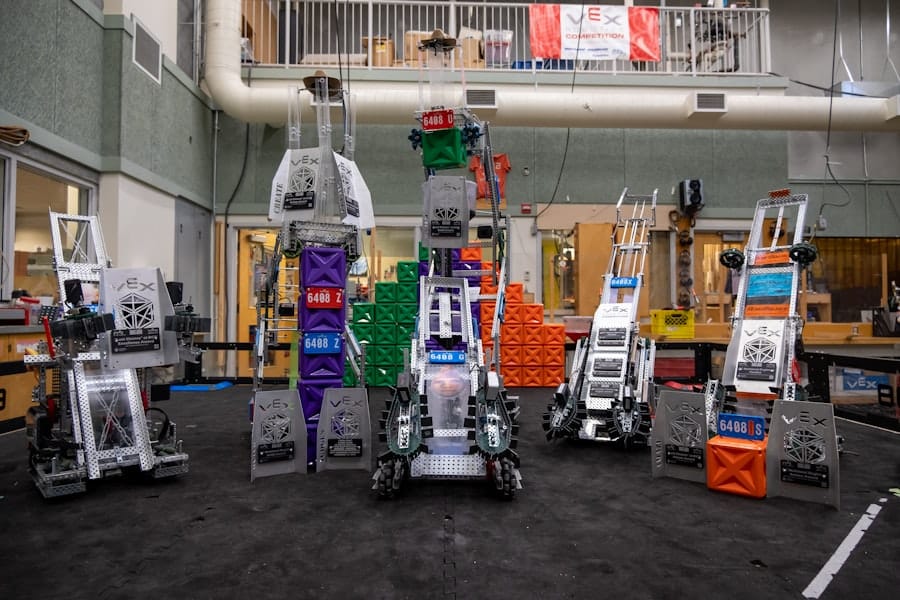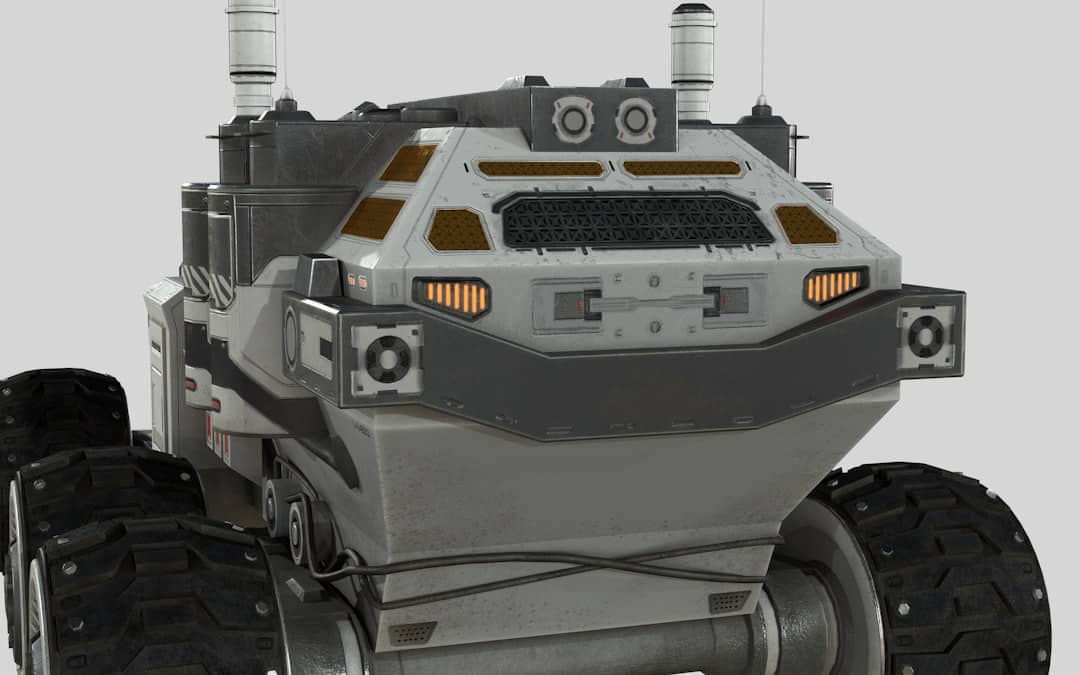The integration of artificial intelligence (AI) into lawn and garden systems marks a significant evolution in how we approach landscaping and horticulture. Traditionally, maintaining a garden or lawn required considerable manual labor, knowledge of plant care, and an understanding of environmental conditions. However, with the advent of AI technologies, these tasks are becoming increasingly automated and efficient.
AI systems can analyze vast amounts of data, learn from patterns, and make informed decisions that enhance the health and aesthetics of outdoor spaces. This transformation is not merely about convenience; it represents a paradigm shift in how we interact with our green environments. AI-powered systems are now capable of performing a variety of tasks, from monitoring soil moisture levels to optimizing irrigation schedules based on weather forecasts.
These systems utilize sensors, cameras, and machine learning algorithms to gather and interpret data, allowing for real-time adjustments that can significantly improve plant health and resource management. As urbanization continues to encroach on natural landscapes, the need for efficient and sustainable lawn and garden care becomes increasingly critical. AI offers innovative solutions that not only enhance the beauty of our surroundings but also contribute to environmental sustainability.
Key Takeaways
- AI is revolutionizing the way lawn and garden systems are managed, offering advanced capabilities for efficiency and precision.
- AI-powered autonomous lawn and garden systems provide advantages such as reduced labor, improved accuracy, and optimized resource usage.
- AI improves efficiency and precision in lawn and garden care through real-time monitoring, data analysis, and adaptive decision-making.
- Machine learning plays a crucial role in autonomous lawn and garden systems by enabling them to learn and adapt to changing conditions.
- AI is shaping the future of sustainable lawn and garden management by promoting water conservation, reducing chemical usage, and minimizing environmental impact.
Advantages of AI-Powered Autonomous Lawn and Garden Systems
One of the most compelling advantages of AI-powered autonomous lawn and garden systems is their ability to operate independently, reducing the need for human intervention. Robotic mowers, for instance, can navigate complex landscapes, avoiding obstacles while ensuring an even cut. These machines are equipped with advanced sensors and GPS technology that allow them to map out the terrain and create efficient mowing patterns.
This autonomy not only saves time but also allows homeowners to focus on other important tasks or leisure activities. Moreover, AI systems can optimize resource usage, particularly in terms of water and fertilizers. Traditional lawn care often involves a one-size-fits-all approach, where irrigation schedules are set without considering real-time environmental conditions.
In contrast, AI-driven systems can analyze soil moisture levels, weather forecasts, and plant health data to determine the precise amount of water needed at any given time. This targeted approach minimizes waste and promotes healthier plant growth, ultimately leading to more sustainable gardening practices.
How AI Improves Efficiency and Precision in Lawn and Garden Care

Efficiency in lawn and garden care is significantly enhanced through the use of AI technologies. For example, smart irrigation systems equipped with AI can adjust watering schedules based on real-time weather data and soil conditions. If rain is forecasted, these systems can delay watering, preventing over-saturation and potential root rot.
This level of precision not only conserves water but also ensures that plants receive the optimal amount of hydration they need to thrive. In addition to irrigation, AI can improve precision in pest management. Traditional methods often rely on broad-spectrum pesticides that can harm beneficial insects and disrupt local ecosystems.
AI systems can utilize image recognition technology to identify specific pests or diseases affecting plants. By analyzing images captured by drones or cameras, these systems can recommend targeted treatments that minimize chemical use while effectively addressing the problem. This precision leads to healthier gardens and lawns while also promoting biodiversity.
The Role of Machine Learning in Autonomous Lawn and Garden Systems
Machine learning, a subset of AI, plays a crucial role in enhancing the capabilities of autonomous lawn and garden systems. By processing large datasets from various sources—such as weather patterns, soil conditions, and plant growth metrics—machine learning algorithms can identify trends and make predictions about future conditions. For instance, a machine learning model could analyze historical data on plant growth in relation to temperature fluctuations to predict how a specific plant species will respond to changing climate conditions.
As they gather more data over time, they become better at making decisions tailored to specific environments. For example, a smart garden system might learn that certain plants thrive better with less water during specific seasons based on past performance data.
This adaptability ensures that the system remains effective even as environmental conditions change, providing a dynamic approach to lawn and garden care.
AI and the Future of Sustainable Lawn and Garden Management
The future of sustainable lawn and garden management is inextricably linked to advancements in AI technology. As concerns about climate change and resource depletion grow, the need for sustainable practices becomes paramount. AI-powered systems offer innovative solutions that align with these goals by promoting efficient resource use and reducing environmental impact.
For instance, precision agriculture techniques powered by AI can help farmers optimize crop yields while minimizing water usage and chemical inputs. In urban settings, where green spaces are often limited, AI can facilitate vertical gardening or urban farming initiatives that maximize space while ensuring sustainability. By analyzing light exposure, humidity levels, and nutrient availability, AI systems can guide urban gardeners in creating productive green spaces that contribute to local food security.
This integration of technology into gardening not only enhances productivity but also fosters a deeper connection between communities and their environments.
Challenges and Limitations of AI-Powered Lawn and Garden Systems

Despite the numerous advantages offered by AI-powered lawn and garden systems, several challenges and limitations must be addressed for widespread adoption. One significant hurdle is the initial cost associated with implementing these technologies. High-quality sensors, robotic mowers, and sophisticated software can represent a substantial investment for homeowners or small-scale gardeners.
While long-term savings on water and maintenance may offset these costs, the upfront financial barrier can deter many potential users. Additionally, there are concerns regarding the reliability of AI systems in unpredictable environments. Gardens are dynamic ecosystems influenced by numerous factors such as weather changes, pest invasions, or soil degradation.
While AI can analyze data effectively, it may struggle to adapt quickly to sudden changes or anomalies that fall outside its training parameters. This limitation necessitates ongoing human oversight to ensure that the systems function optimally under varying conditions.
Integrating AI with Other Smart Home and IoT Devices for Seamless Lawn and Garden Care
The integration of AI with other smart home technologies and Internet of Things (IoT) devices presents an exciting opportunity for seamless lawn and garden care. Homeowners can connect their smart irrigation systems with weather forecasting services to automate watering schedules based on real-time data. For instance, if a rainstorm is predicted, the system can automatically adjust its settings to conserve water while ensuring plants remain adequately hydrated.
Moreover, integrating AI with smart home assistants allows for voice-activated control over garden systems. Homeowners can ask their devices about soil moisture levels or request updates on their robotic mower’s progress without needing to check manually. This interconnectedness not only enhances user experience but also streamlines maintenance tasks across various aspects of home management.
Ethical and Privacy Considerations in AI-Powered Lawn and Garden Systems
As with any technology that collects data from users’ environments, ethical considerations surrounding privacy must be addressed in AI-powered lawn and garden systems. These systems often rely on sensors that monitor soil conditions or cameras that capture images of gardens. While this data is essential for optimizing performance, it raises questions about who has access to this information and how it is used.
Homeowners must be informed about data collection practices and have control over their information. Transparency regarding how data is stored, shared, or utilized is crucial in building trust between consumers and technology providers.
Balancing these ethical considerations with technological advancement will be essential as we move forward into an era where AI plays an increasingly prominent role in our outdoor spaces.
In a related article discussing the latest advancements in technology, the Apple Watch vs Samsung Galaxy Watch comparison highlights the competition between two popular smartwatch brands. As we delve into the world of cutting-edge devices like autonomous lawn and garden systems, it’s fascinating to see how AI is integrated into various gadgets to enhance user experience and functionality. Just like the debate between Apple and Samsung smartwatches, the evolution of AI in powering autonomous systems continues to shape the future of technology.
FAQs
What is the role of AI in powering autonomous lawn and garden systems?
AI plays a crucial role in powering autonomous lawn and garden systems by enabling them to make intelligent decisions based on data from sensors and other sources. AI algorithms can analyze environmental conditions, plant health, and other factors to optimize watering, fertilization, and pest control.
How does AI contribute to the efficiency of autonomous lawn and garden systems?
AI contributes to the efficiency of autonomous lawn and garden systems by continuously learning and adapting to the environment. This allows the systems to optimize resource usage, minimize waste, and respond to changing conditions in real-time.
What are the benefits of using AI in autonomous lawn and garden systems?
The benefits of using AI in autonomous lawn and garden systems include improved resource efficiency, reduced labor requirements, better plant health, and overall cost savings. AI also enables predictive maintenance and proactive problem-solving, leading to more reliable and effective operation.
How does AI enable autonomous lawn and garden systems to adapt to different environments?
AI enables autonomous lawn and garden systems to adapt to different environments by analyzing and interpreting data from various sensors, weather forecasts, and historical patterns. This allows the systems to adjust their behavior and settings to suit specific plants, soil types, and climate conditions.
What are some examples of AI-powered features in autonomous lawn and garden systems?
Some examples of AI-powered features in autonomous lawn and garden systems include predictive watering schedules, automated pest detection and control, soil nutrient analysis, and personalized plant care recommendations. These features help optimize plant growth and health while minimizing human intervention.

